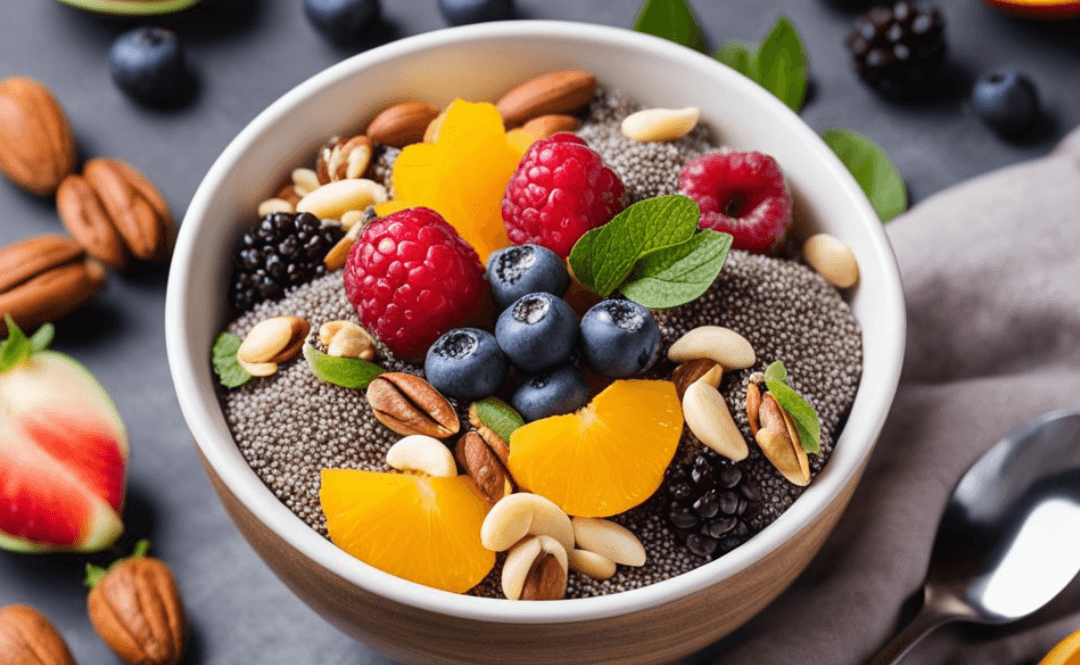Chia seeds have become increasingly popular in recent years, touted as a superfood with numerous health benefits. These tiny seeds come from the plant Salvia hispanica, which is native to Mexico and Guatemala. The Aztecs and Mayans have been using chia seeds for centuries, and they were a staple food in their diets.
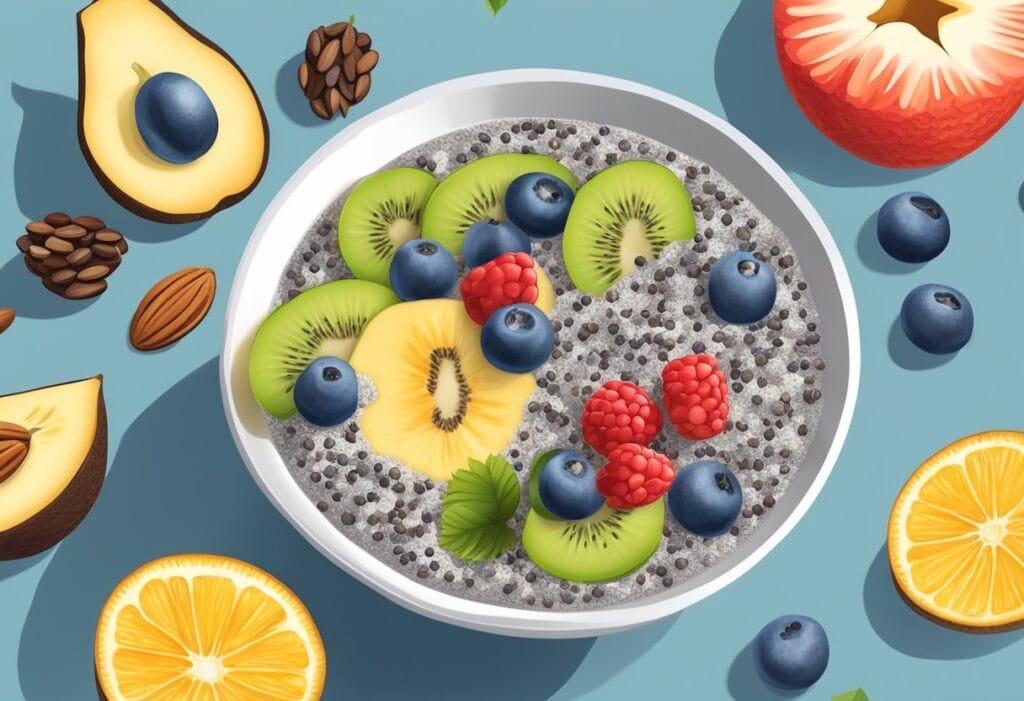
Nutritionally, chia seeds are packed with fiber, protein, healthy fats, and various vitamins and minerals. They are also a rich source of antioxidants, which help protect the body against damage from free radicals. Chia seeds are often recommended for their potential to improve heart health, regulate blood sugar levels, and aid in weight loss.
Overall, chia seeds are a versatile and nutritious addition to any diet. They can be incorporated into a variety of dishes, from smoothies and oatmeal to baked goods and salads. While they do come with some potential risks and considerations, the benefits of chia seeds make them worth considering as part of a healthy diet.
Overview
Key Takeaways
- Chia seeds are a superfood with numerous health benefits.
- They are packed with fiber, protein, healthy fats, and various vitamins and minerals.
- Chia seeds can be incorporated into a variety of dishes and are worth considering as part of a healthy diet.
Nutritional Profile
When it comes to nutrition, chia seeds are a powerhouse of essential nutrients. They are packed with macronutrients, vitamins, minerals, and fiber. Here’s a closer look at the nutritional profile of chia seeds.
Macronutrients and Calories
Chia seeds are an excellent source of macronutrients, including protein, fat, and carbohydrates. A 1-ounce (28-gram) serving of chia seeds contains 138 calories, 4.7 grams of protein, 8.7 grams of fat, and 12 grams of carbohydrates. However, the majority of the carbohydrate content comes from fiber, with nearly 10 grams of fiber per serving.
Vitamins and Minerals
Chia seeds are also a great source of vitamins and minerals. They are particularly rich in calcium, with one serving providing 18% of the recommended daily intake (RDI). Additionally, chia seeds contain phosphorus, magnesium, iron, and zinc, all of which are essential minerals for maintaining good health.
Omega-3 Fatty Acids and Fiber
Chia seeds are one of the best plant-based sources of omega-3 fatty acids, which are essential for maintaining heart health and reducing inflammation in the body. They are also an excellent source of fiber, which is essential for maintaining good digestive health and reducing the risk of chronic diseases such as diabetes, heart disease, and cancer.
In conclusion, chia seeds are an excellent addition to a healthy diet. They are packed with essential nutrients, including macronutrients, vitamins, minerals, and fiber. Incorporating chia seeds into your diet can help improve your overall health and well-being.
Health Benefits of Chia Seeds
Chia seeds are a superfood that are packed with essential nutrients and health benefits. Here are some of the benefits of including chia seeds in your diet.
Cardiovascular Health
Chia seeds are rich in omega-3 fatty acids, which are essential for maintaining heart health. According to a study published in the Journal of Nutrition, consuming chia seeds can help reduce inflammation, blood pressure, and cholesterol levels, all of which are risk factors for heart disease.
Blood Sugar Regulation
Chia seeds are also beneficial for regulating blood sugar levels, making them a great choice for people with diabetes. The high soluble fiber content in chia seeds slows down the absorption of sugar in the bloodstream, preventing spikes in blood sugar levels. Additionally, the antioxidants in chia seeds help reduce oxidative stress, which can also contribute to the development of diabetes.
Digestive Health
Chia seeds are a great source of fiber, which is essential for maintaining digestive health. The high fiber content in chia seeds helps promote regular bowel movements and prevent constipation. Moreover, the soluble fiber in chia seeds helps feed the good bacteria in the gut, promoting a healthy digestive system.
Bone Strength
Chia seeds are rich in calcium, magnesium, and phosphorus, all of which are essential for maintaining strong bones. According to a study, consuming chia seeds can help prevent bone loss and improve bone density, making them a great addition to your diet if you are concerned about bone health.
Overall, chia seeds are a nutrient-dense food that can provide numerous health benefits. By incorporating them into your diet, you can improve your cardiovascular health, regulate blood sugar levels, maintain digestive health, and promote strong bones.
Culinary Uses
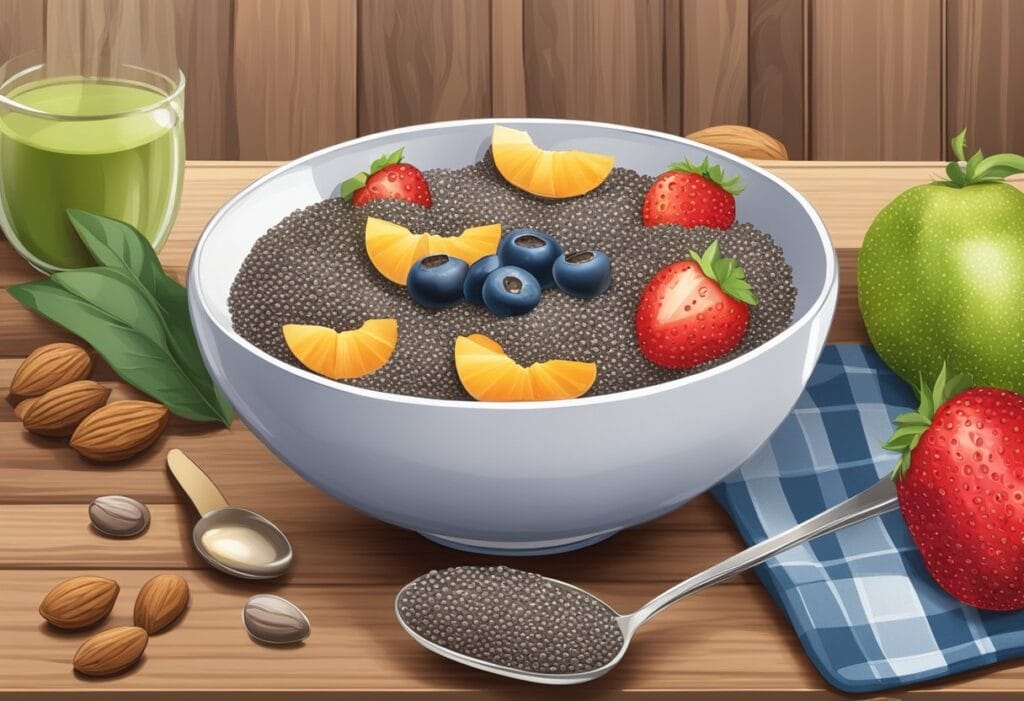
Chia seeds are a versatile ingredient that can be used in a variety of dishes. Here are some ways to incorporate chia seeds into your meals:
Chia-Based Recipes
Chia pudding is a popular recipe that uses chia seeds as the main ingredient. To make chia pudding, mix chia seeds with a liquid such as milk or yogurt and let it sit in the fridge overnight. The result is a creamy and nutritious pudding that can be topped with fruit, nuts, or granola.
Another recipe that uses chia seeds is granola bars. Instead of using eggs to hold the ingredients together, chia seeds can be used as a binder. Mix chia seeds with water to create a gel-like substance that can be used in place of eggs.
Incorporating Chia into Meals
Chia seeds can also be added to baked goods such as bread and muffins. They can be used as a flour substitute or added to the batter for extra nutrition. Chia seeds can also be sprinkled on top of cereal or yogurt for a crunchy texture.
For a healthy smoothie, add chia seeds to the blender along with your favorite fruits and vegetables. The chia seeds will add a boost of fiber and protein to your drink.
Chia seeds can even be used in sauces and dressings. Mix chia seeds with vinegar and oil to create a healthy and flavorful dressing for your salad.
Overall, chia seeds are a versatile and nutritious ingredient that can be used in a variety of dishes. Whether you’re making chia pudding, adding them to your smoothie, or using them in baked goods, chia seeds are a great way to add extra nutrition to your meals.
Potential Risks and Considerations
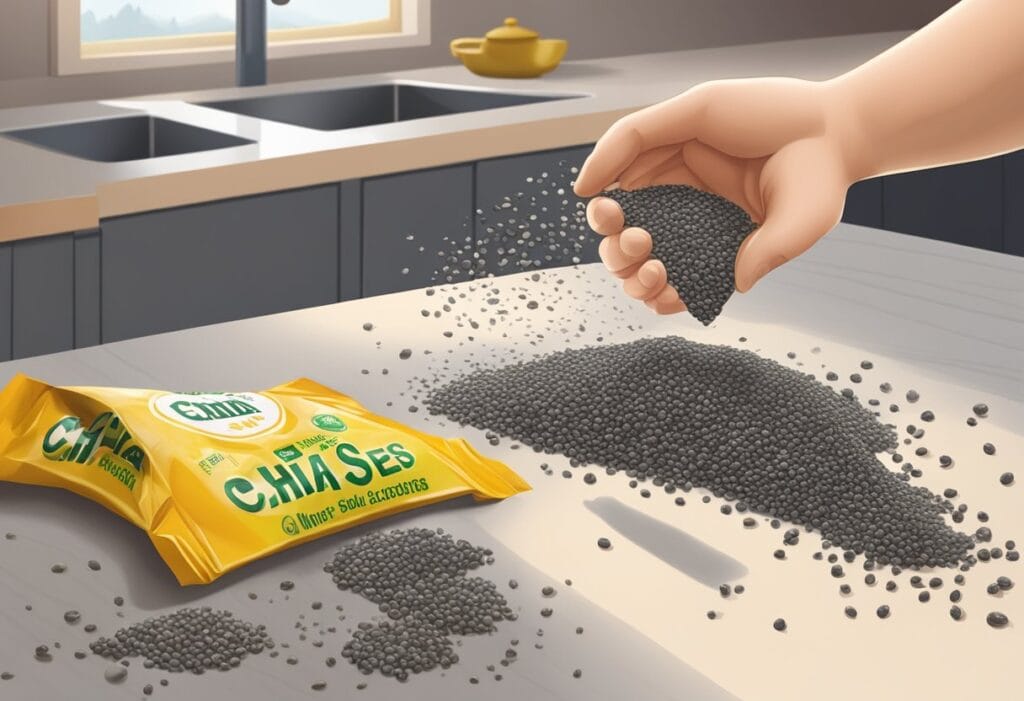
Chia seeds are generally considered safe for consumption and have a low risk of adverse effects. However, there are a few potential risks and considerations that you should be aware of before incorporating chia seeds into your diet.
Allergies and Intolerances
Like any food, chia seeds can cause allergic reactions in some people. If you have a history of allergies to sesame seeds or mustard seeds, you may also be allergic to chia seeds. Symptoms of an allergic reaction may include hives, itching, swelling, difficulty breathing, and anaphylaxis. If you experience any of these symptoms after consuming chia seeds, seek medical attention immediately.
In addition, some people may experience digestive issues such as bloating, gas, and diarrhea after consuming chia seeds. This may be due to the high fiber content of chia seeds. To minimize the risk of digestive issues, start with a small amount of chia seeds and gradually increase the amount over time.
Interaction with Medications
Chia seeds may interact with certain medications, including blood thinners and blood pressure medications. Chia seeds contain omega-3 fatty acids, which have blood-thinning properties and may increase the risk of bleeding when taken with blood-thinning medications. In addition, chia seeds may lower blood pressure and may interact with blood pressure medications, causing blood pressure to drop too low.
If you are taking any medications, consult with your healthcare provider before adding chia seeds to your diet. They can advise you on whether chia seeds are safe for you to consume and whether any adjustments to your medication regimen are necessary.
Overall, chia seeds are a nutritious and versatile food that can be a great addition to a healthy diet. However, it’s important to be aware of the potential risks and considerations associated with chia seed consumption, especially if you have a history of allergies or are taking medications.
Historical and Cultural Significance
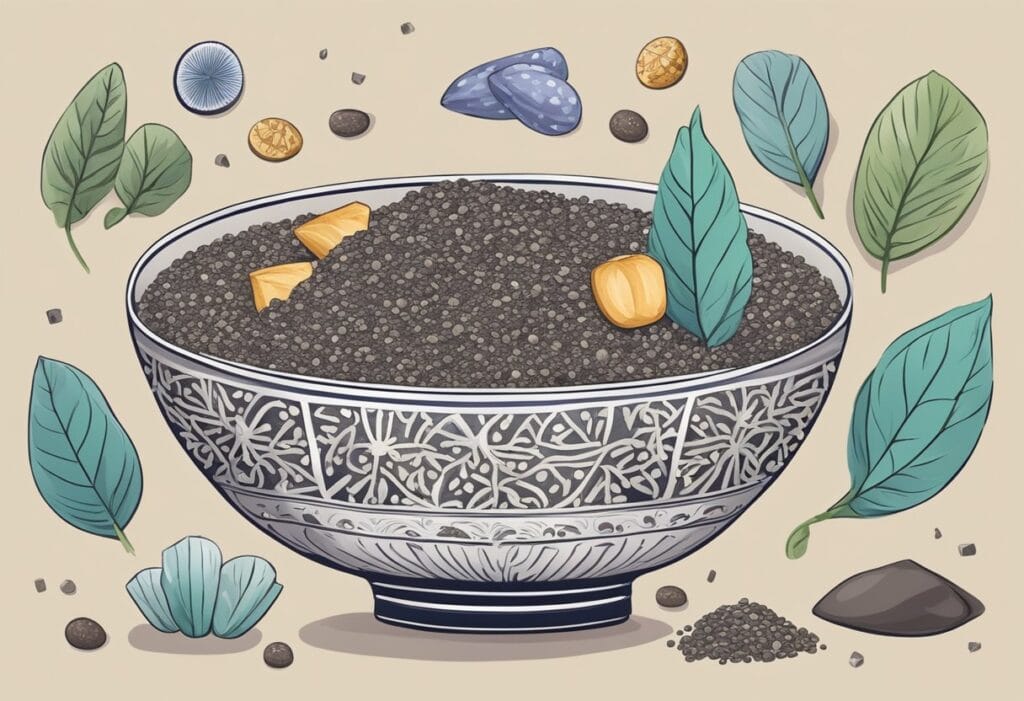
Chia seeds have a long history of use in the cultures of Mexico and Guatemala. The seeds come from the plant Salvia hispanica L., which is a member of the mint family. The Aztecs and other Mesoamerican cultures used chia seeds as a source of energy and nutrition. In fact, the word “chia” is derived from the Aztec word “chian,” which means “oily.”
According to historical accounts, chia seeds were an important part of the Aztec diet. The seeds were ground into flour and used to make bread, as well as added to drinks and used as a medicine. Chia seeds were also used as an offering to the gods during religious ceremonies.
The Tarahumara Indians, who live in the Copper Canyon region of Mexico, are known for their long-distance running abilities. They have been using chia seeds as a source of energy for centuries. The seeds are mixed with water to make a gel-like substance that can be consumed during long runs.
Today, chia seeds are widely used as a health food. They are rich in omega-3 fatty acids, fiber, and antioxidants. Chia seeds are also gluten-free, making them a good option for people with celiac disease or gluten intolerance.
In summary, chia seeds have a rich historical and cultural significance in the cultures of Mexico and Guatemala. They were an important part of the Aztec diet and continue to be used as a source of energy and nutrition today.

